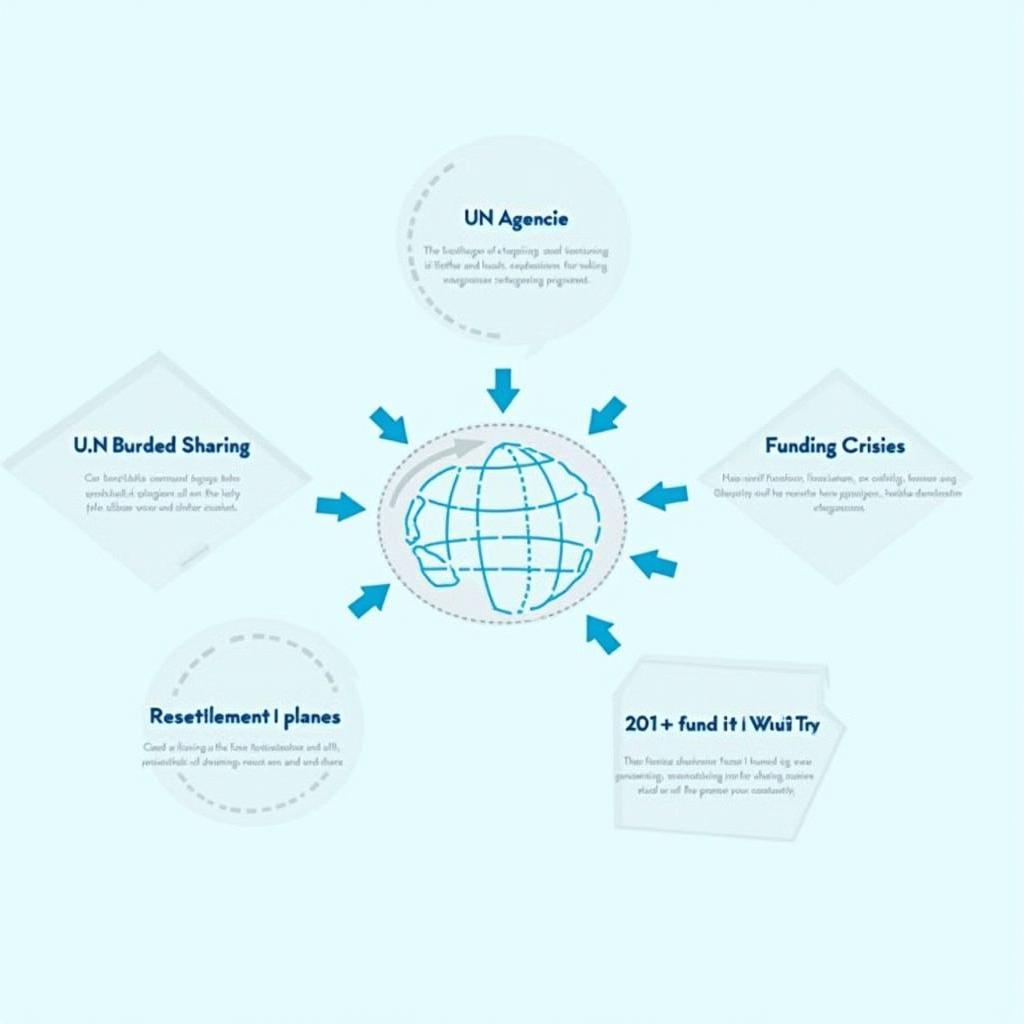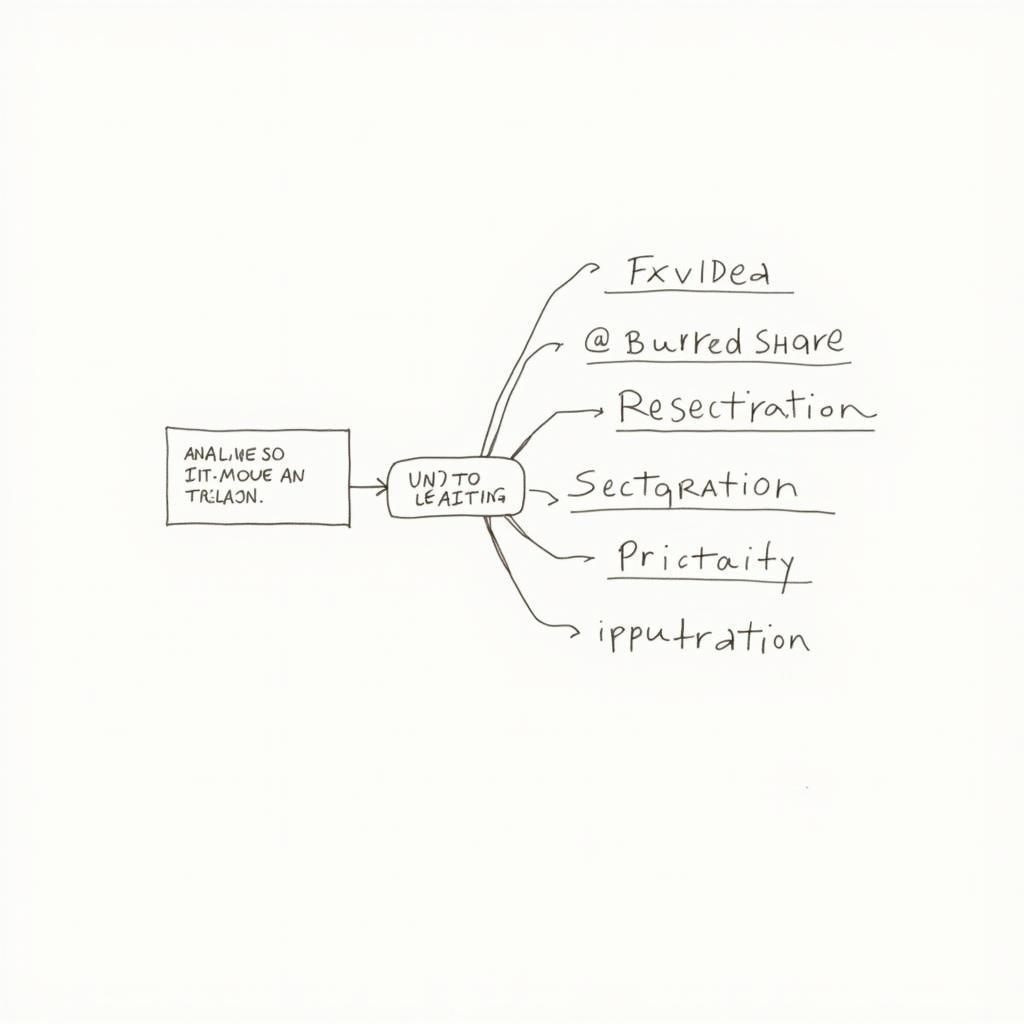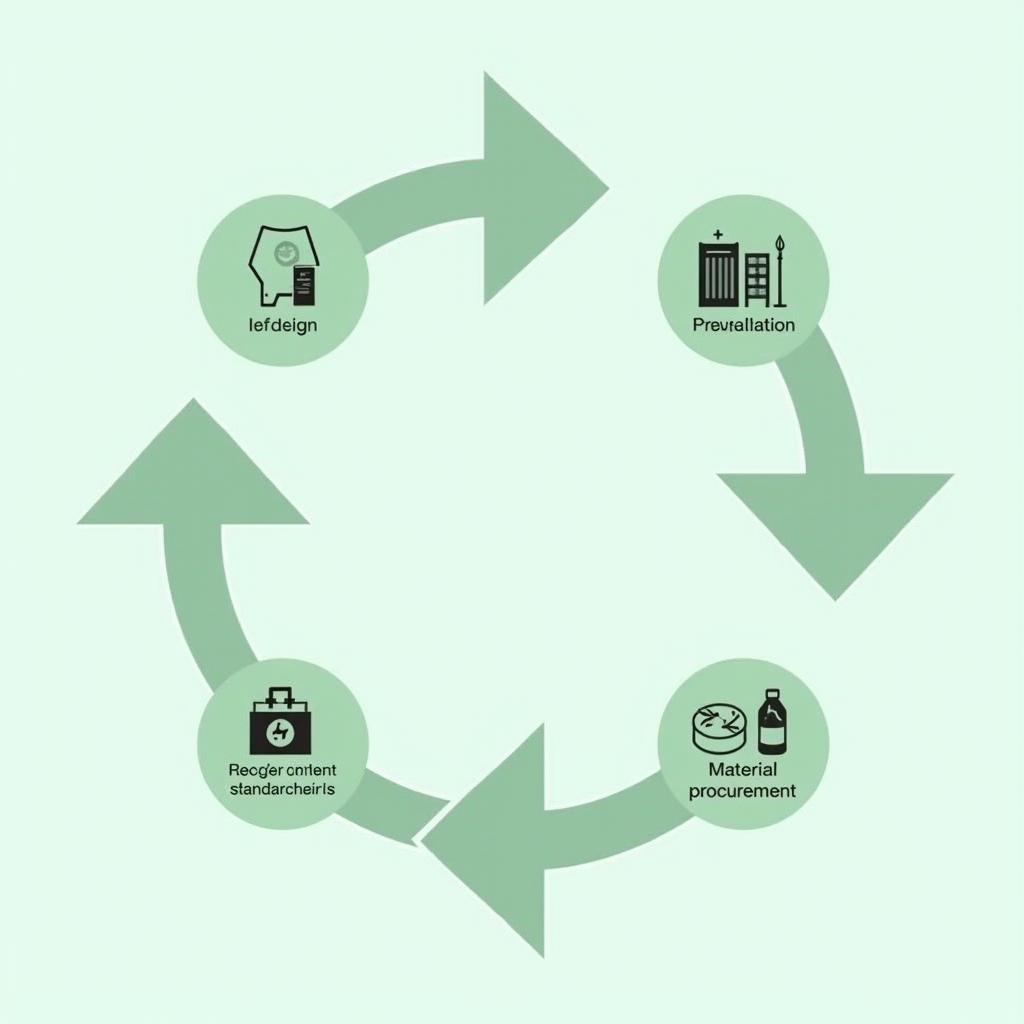Chủ đề How Can International Cooperation Address Refugee Crises xuất hiện ngày càng dày trong đề thi IELTS Writing Task 2 vì gắn liền với thời sự toàn cầu, đạo đức quốc tế và chính sách công. Bài viết này giúp bạn làm chủ chủ đề “người tị nạn” và “hợp tác quốc tế” qua 3 bài mẫu theo dải band 5-6, 6.5-7, và 8-9, kèm phân tích chấm điểm chi tiết, từ vựng học thuật, cấu trúc câu ăn điểm, và checklist tự đánh giá. Bạn sẽ học cách phân tích đề, phát triển luận điểm, sử dụng ví dụ phù hợp, kiểm soát ngôn ngữ và liên kết logic đúng chuẩn giám khảo IELTS.
Một số đề thi thực tế đã được báo cáo và tổng hợp bởi các nguồn uy tín:
- Developed countries should accept more refugees and provide them with basic assistance. To what extent do you agree or disagree? (Báo cáo trên IELTS Liz – Recent Exam Topics; IELTS-Blog – Recent Writing Questions)
- Some people think rich countries have a moral obligation to accept more refugees. Do you agree or disagree? (Báo cáo trên IELTS-Blog)
- International problems can only be solved through international cooperation. To what extent do you agree or disagree? (Nguồn tổng hợp: British Council sample topics, IELTS Liz question bank – chủ đề rộng, có thể triển khai cho khủng hoảng người tị nạn)
 Infographic về How can international cooperation address refugee crises và chiến lược bài mẫu IELTS
Infographic về How can international cooperation address refugee crises và chiến lược bài mẫu IELTS
1. Đề Writing Part 2
Developed countries should accept more refugees and provide them with basic assistance. To what extent do you agree or disagree?
Dịch đề: “Các quốc gia phát triển nên tiếp nhận nhiều người tị nạn hơn và cung cấp cho họ hỗ trợ cơ bản. Bạn đồng ý hay không đồng ý tới mức độ nào?”
Phân tích đề bài:
- Dạng câu hỏi: Opinion (Agree/Disagree) – yêu cầu nêu quan điểm rõ ràng và mức độ đồng ý, đồng thời bảo vệ bằng 2-3 luận điểm chính.
- Thuật ngữ quan trọng:
- refugees: người tị nạn (khác với “migrants” – người di cư vì lý do kinh tế)
- basic assistance: hỗ trợ cơ bản (nhu yếu phẩm, nơi ở tạm, y tế, giáo dục ban đầu)
- developed countries: quốc gia phát triển (có thể so với host countries/neighboring countries)
- Lỗi thường gặp:
- Lạc đề sang “immigration for jobs” thay vì “refugee crises”
- Dùng ví dụ chính trị nhạy cảm, số liệu bịa đặt
- Thiếu khung “responsibility-sharing” và “international cooperation”
- Sai mạo từ (a/an/the), thì, giới từ; câu quá dài thiếu dấu câu
- Cách tiếp cận chiến lược:
- Nêu luận điểm theo khung hợp tác quốc tế: chia sẻ trách nhiệm, tái định cư (resettlement), tài trợ cho nước tiếp nhận đầu tiên, tích hợp xã hội (integration), sàng lọc an ninh.
- Cân bằng: thừa nhận lo ngại về năng lực tiếp nhận và giải pháp phối hợp đa phương (UNHCR, quotas, funding).
- Dùng ví dụ khái quát, không nêu tên quốc gia nhạy cảm.
2. Bài mẫu Band 8-9
Đặc điểm: Lập luận sâu, cân bằng quan điểm, dẫn luận logic, dùng từ học thuật chính xác, câu đa dạng và tự nhiên.
Bài luận (khoảng 300 từ):
While humanitarian principles suggest that affluent nations should take in more refugees, the most sustainable response is not unilateral generosity but coordinated, multilateral burden‑sharing. I largely agree with accepting more refugees, provided it is embedded in a system of international cooperation that ensures fairness, capacity‑sensitivity, and long‑term integration.
First, refugee crises are inherently transnational; conflicts and persecution do not respect borders. A purely national approach either overburdens front‑line host countries or invites political backlash in destination states. A rules‑based framework led by agencies such as UNHCR can distribute responsibility through resettlement quotas aligned with each country’s GDP, population size, and existing absorption capacity. This not only prevents “free‑riding” but also reassures voters that admissions are planned, capped, and transparent.
Second, accepting refugees without robust support traps them in dependency and fuels social tensions. Developed countries should pair admissions with targeted funding for housing, language training, and credential recognition, so that newcomers can contribute economically. Parallel investment in municipalities—where services are delivered—helps local schools and clinics expand without crowding out existing users.
However, concerns about security and social cohesion cannot be dismissed. Cooperation enables joint security screening, data‑sharing, and humanitarian corridors that minimize irregular crossings. Moreover, wealthier nations can stabilize regions of origin by financing education, livelihoods, and climate adaptation in first‑asylum countries, which are often lower‑income neighbors hosting the largest numbers.
In short, taking more refugees is both morally compelling and economically feasible—if it is organized collectively. Only a balanced mix of resettlement, fair funding, and integration policies can transform emergency shelter into durable solutions for refugees and host communities alike.
Phân tích Band điểm
| Tiêu chí | Band | Nhận xét |
|---|---|---|
| Task Response (Hoàn thành yêu cầu) | 8.5 | Trả lời trực diện, nêu quan điểm rõ ràng “largely agree” kèm điều kiện; phát triển 3 luận điểm lớn (quota, integration, security/regional support) với giải pháp cụ thể. Không có phần nào lạc đề. |
| Coherence & Cohesion (Mạch lạc & Liên kết) | 8.5 | Bố cục 4 đoạn cân đối; câu chủ đề rõ; dùng thiết bị liên kết logic “First/Second/However/In short” và lặp có kiểm soát các từ khóa (cooperation, resettlement). Chuyển đoạn mượt và có sự tăng tiến ý. |
| Lexical Resource (Từ vựng) | 8.5 | Từ vựng học thuật chính xác: multilateral burden‑sharing, rules‑based framework, first‑asylum countries, credential recognition, humanitarian corridors. Collocations tự nhiên, không lạm dụng. |
| Grammatical Range & Accuracy (Ngữ pháp) | 8 | Câu phức đa dạng: mệnh đề quan hệ, cụm phân từ, đảo ngữ nhẹ với Only-phrases. Lỗi hầu như không có; dấu câu và song song chuẩn xác. |
Các yếu tố giúp bài này được chấm điểm cao
- Quan điểm có điều kiện “agree if embedded in cooperation” thể hiện tư duy phê phán.
- Khung lập luận theo “responsibility-sharing” giúp cấu trúc mạch lạc, thuyết phục.
- Ví dụ giải pháp cụ thể (resettlement quotas gắn GDP, screening, funding municipalities).
- Ngôn ngữ học thuật chính xác, collocations mạnh và đúng ngữ cảnh.
- Cân bằng phản biện: thừa nhận an ninh/xã hội, đưa giải pháp phối hợp đa phương.
- Kết luận tổng hợp, nhấn mạnh chuyển đổi từ cứu trợ khẩn cấp sang giải pháp bền vững.
3. Bài mẫu Band 6.5-7
Đặc điểm: Ý rõ ràng, có ví dụ và liên kết cơ bản; đôi chỗ từ vựng/gram chưa tinh tế, phát triển ý chưa sâu.
Bài luận (khoảng 265 từ):
Many people argue that rich countries should accept more refugees, and I generally agree, but this must go together with cooperation at the international level. Without shared responsibility, a few countries will carry too much pressure while others do very little.
To begin with, refugees escape war or persecution, so giving them safety is a moral duty. However, it is not realistic for every developed nation to open the door without a plan. Through international cooperation, countries can set fair targets based on their population and economy. This helps avoid overcrowding in popular destinations, and it also prevents negative reactions from local people who worry about jobs and services.
Another reason for cooperation is that support after arrival matters as much as admission. If refugees receive basic assistance only, they may struggle for years. Governments should invest in language courses, housing, and job matching so that newcomers become taxpayers. Rich countries can also contribute money to first‑host countries near conflict zones, where most refugees actually live, because these places have fewer resources.
Of course, there are concerns about security and integration. But joint screening and legal pathways can reduce risks, while community programs and mentoring can build trust between refugees and local residents.
In conclusion, developed countries should accept more refugees, but the best way is to share the work fairly and focus on integration. With the right plan, refugees can rebuild their lives and host societies can also benefit.
Phân tích Band điểm
| Tiêu chí | Band | Nhận xét |
|---|---|---|
| Task Response (Hoàn thành yêu cầu) | 7.0 | Quan điểm rõ ràng; lập luận đủ 2-3 ý chính; ví dụ ở mức khái quát. Thiếu chiều sâu số liệu/khung thể chế cụ thể so với Band 8-9. |
| Coherence & Cohesion (Mạch lạc & Liên kết) | 7.0 | Bố cục rõ; liên kết dùng hợp lý (To begin with/Another reason/Of course/In conclusion). Một số ý còn khái quát, chuyển ý chưa thật mạnh. |
| Lexical Resource (Từ vựng) | 6.5 | Từ vựng phù hợp chủ đề; lặp lại “cooperation/refugees” khá nhiều; thiếu collocations nâng cao (ví dụ humanitarian corridors, credential recognition). |
| Grammatical Range & Accuracy (Ngữ pháp) | 6.5 | Cấu trúc câu tương đối đa dạng nhưng an toàn; có một vài câu đơn dài có thể tách; độ chính xác tốt, lỗi nhẹ không ảnh hưởng hiểu. |
So sánh với bài Band 8-9
- Band 8-9 có khung thể chế rõ ràng (UNHCR, quotas theo GDP, first‑asylum), trong khi Band 6.5-7 nói chung chung.
- Band 8-9 có collocations học thuật giàu sắc thái; Band 6.5-7 dùng từ phổ thông và lặp.
- Band 8-9 xử lý phản biện sâu (an ninh, năng lực tiếp nhận) kèm giải pháp; Band 6.5-7 nêu ý đúng nhưng ngắn.
4. Bài mẫu Band 5-6
Đặc điểm: Trả lời được câu hỏi nhưng còn lạc đề nhẹ, phát triển ý thiếu, từ vựng/gram còn lỗi, liên kết rời.
Bài luận (khoảng 255 từ):
Some people say developed countries must take more refugees and give basic help. I agree in general, but there are many problems. Refugees is coming because of war, and we should help them. If we do not, it will look selfish to the world.
Firstly, rich countries have money, so they can pay for housing and food. But if too many people arrive at the same time, hospitals and schools will be very crowded. Government should give many monies to solve this, and also make refugees learn language fast. Otherwise, they cannot find jobs and then local people will be angry.
Secondly, some people worry about safety. It is true that checking people at the border is important. But cooperating with other countries can reduce the problem very much, like share data and make legal ways for enter. In addition, we can send aid to countries near the war, so refugees do not need to travel far.
In conclusion, developed countries should accept more refugees, but also need rules and cooperation. If plan well, this will be good for both sides.
Phân tích Band điểm
| Tiêu chí | Band | Nhận xét |
|---|---|---|
| Task Response (Hoàn thành yêu cầu) | 5.5 | Có quan điểm nhưng lý lẽ đơn giản, thiếu chiều sâu và ví dụ cụ thể; vài câu lặp ý. |
| Coherence & Cohesion (Mạch lạc & Liên kết) | 5.5 | Có mở-thân-kết nhưng chuyển ý còn đột ngột; dụng cụ liên kết hạn chế; lặp từ. |
| Lexical Resource (Từ vựng) | 5.5 | Vốn từ hạn chế; nhiều collocations sai hoặc không tự nhiên (give many monies, legal ways for enter). |
| Grammatical Range & Accuracy (Ngữ pháp) | 5.0 | Lỗi mạo từ, chia thì, số ít/số nhiều, giới từ; câu phức ít và dùng chưa chuẩn. |
Những lỗi sai của bài – phân tích & giải thích
| Lỗi sai | Loại lỗi | Sửa lại | Giải thích |
|---|---|---|---|
| Refugees is coming | Số ít/số nhiều, thì | Refugees are coming | “Refugees” là số nhiều; dùng “are”. Cũng nên dùng hiện tại đơn mô tả thực tế chung: Refugees flee/arrive. |
| Government should give many monies | Danh từ không đếm được, collocation | The government should provide more funding | “Money” không đếm được; collocation đúng: provide funding/allocate funds. |
| make refugees learn language fast | Collocation, mạo từ | provide refugees with fast‑track language courses | Dùng collocation tự nhiên; thêm mạo từ khi cần (courses). |
| legal ways for enter | Giới từ, danh động từ | legal pathways for entry | Dùng “pathways” + “for entry” là cụm chuẩn. |
| If plan well | Thiếu chủ ngữ | If we plan well / If plans are well designed | Mệnh đề cần chủ ngữ và động từ đầy đủ. |
Cách Cải Thiện Từ Band 6 Lên Band 7
- Tăng chiều sâu ý: đưa khung “responsibility-sharing”, “resettlement quotas”, “integration funding”.
- Nâng collocations: provide resettlement places, joint security screening, host communities.
- Sửa triệt để lỗi cơ bản: mạo từ, số ít/số nhiều, giới từ, thì.
- Dùng chủ đề câu rõ và dẫn chứng khái quát hợp lý (không cần số liệu cụ thể).
- Đa dạng hóa cấu trúc câu: mệnh đề quan hệ, câu điều kiện, cụm phân từ.
[internal_link: Liên kết nội bộ gợi ý: Cách viết mở bài Task 2, Từ nối học thuật, Chiến lược phát triển ý]
5. Từ vựng quan trọng cần nhớ cho How can international cooperation address refugee crises
| Từ/Cụm từ | Loại từ | Phiên âm | Nghĩa tiếng Việt | Ví dụ (English) | Collocations |
|---|---|---|---|---|---|
| refugee | n. | ˌref.juˈdʒiː | người tị nạn | Many refugees seek safety in neighboring countries. | refugee camp, refugee protection |
| asylum seeker | n. | əˈsaɪ.ləm ˌsiː.kər | người xin tị nạn | Asylum seekers must undergo screening before resettlement. | legitimate asylum claim |
| resettlement | n. | ˌriːˈset.əl.mənt | tái định cư | Resettlement offers a durable solution for the most vulnerable. | resettlement quota/places |
| burden‑sharing | n. | ˈbɜː.dən ˌʃeə.rɪŋ | chia sẻ gánh nặng | Burden‑sharing prevents frontline states from being overwhelmed. | fair/equitable burden‑sharing |
| first‑asylum country | n. | fɜːst əˈsaɪ.ləm ˈkʌn.tri | nước tiếp nhận đầu tiên | Most refugees stay in first‑asylum countries. | support to first‑asylum countries |
| non‑refoulement | n. | ˌnɒn rɪˈfuːlmɒ̃ | nguyên tắc không trục xuất về nơi nguy hiểm | Non‑refoulement is a cornerstone of refugee law. | principle/doctrine of non‑refoulement |
| humanitarian corridor | n. | hjuːˌmænɪˈteə.ri.ən ˈkɒrɪdɔː | hành lang nhân đạo | Humanitarian corridors reduce dangerous sea crossings. | establish humanitarian corridors |
| host community | n. | həʊst kəˈmjuː.nə.ti | cộng đồng tiếp nhận | Integration policies must support host communities too. | support for host communities |
| credential recognition | n. | krɪˈden.ʃəl ˌrek.əɡˈnɪʃ.ən | công nhận bằng cấp | Credential recognition speeds up labour market entry. | streamline credential recognition |
| multilateral | adj. | ˌmʌl.tiˈlæt.ər.əl | đa phương | A multilateral approach is more sustainable than ad‑hoc action. | multilateral cooperation/framework |
| capacity‑building | n. | kəˌpæs.ə.ti ˈbɪl.dɪŋ | tăng cường năng lực | Donors should fund capacity‑building for local services. | capacity‑building program |
| collective action | n. | kəˌlek.tɪv ˈæk.ʃən | hành động tập thể | Only collective action can address large‑scale displacement. | effective/urgent collective action |
| Not only … but also … | connector | — | không chỉ … mà còn … | Not only does cooperation save lives, but it also stabilizes regions. | — |
| By the same token | connector | — | tương tự, vì lý do đó | By the same token, funding must reach municipalities. | — |
| to the extent that | phrase | — | đến mức mà | The policy is feasible to the extent that resources are shared. | to the extent that + clause |
Gợi ý phát âm: ghi âm IPA, nhấn trọng âm đúng; luyện cụm theo nhịp collocation để nhớ lâu.
6. Cấu trúc câu dễ ăn điểm cao cho How can international cooperation address refugee crises
- Câu phức với mệnh đề phụ thuộc
- Công thức: Mệnh đề chính + when/while/because/although/if + mệnh đề phụ.
- Ví dụ từ bài Band 8-9: While humanitarian principles suggest…, the most sustainable response is coordinated burden‑sharing.
- Vì sao ghi điểm: Tạo quan hệ nhân quả/nhượng bộ rõ ràng; thể hiện kiểm soát cú pháp.
- Ví dụ bổ sung: Because resources are limited, admissions must be paired with funding. Although public concern is real, transparent quotas can build trust.
- Lỗi thường gặp: Dùng although/though với but cùng lúc; thiếu dấu phẩy sau mệnh đề phụ dẫn dài.
- Mệnh đề quan hệ không xác định (non‑defining relative clause)
- Công thức: Danh từ, which/who + mệnh đề, …
- Ví dụ: A rules‑based framework, which can be led by UNHCR, distributes responsibility fairly.
- Vì sao: Bổ sung thông tin học thuật mạch lạc, tăng độ tin cậy.
- Ví dụ bổ sung: Host communities, which deliver public services, need support. Resettlement places, which are often limited, should be increased.
- Lỗi: Bỏ dấu phẩy; dùng that thay cho which trong mệnh đề không xác định.
- Cụm phân từ (participle phrases)
- Công thức: V-ing/V-ed + cụm, + mệnh đề chính.
- Ví dụ: Pairing admissions with targeted funding, governments can ease local pressure.
- Vì sao: Cô đọng, nhịp văn học thuật.
- Ví dụ: Building local capacity, donors create durable outcomes. Designed well, quotas reassure the public.
- Lỗi: Sai chủ ngữ logic (dangling participle); thiếu dấu phẩy.
- Câu chẻ (Cleft sentences)
- Công thức: It is/was + thành phần nhấn mạnh + that/who + mệnh đề.
- Ví dụ: It is coordinated cooperation that turns generosity into sustainable policy.
- Vì sao: Nhấn mạnh trọng tâm lập luận.
- Ví dụ: It is integration, not mere relief, that drives long‑term success. It is funding at the municipal level that prevents backlash.
- Lỗi: Lạm dụng; sai thì/mệnh đề theo sau.
- Câu điều kiện nâng cao
- Công thức: If + hiện tại đơn, + will/can; If + quá khứ đơn, + would/could; If + had + V3, + would have + V3.
- Ví dụ: If quotas are aligned with capacity, social tensions can be mitigated.
- Vì sao: Thể hiện giả định, hệ quả chính sách.
- Ví dụ: If host schools receive funding, outcomes improve. If cooperation had started earlier, fewer risky journeys would have occurred.
- Lỗi: Sai thì; trộn loại điều kiện.
- Đảo ngữ với Only/Not until
- Công thức: Only when/after + mệnh đề, + trợ động từ + S + V.
- Ví dụ: Only a balanced mix of resettlement, funding, and integration can deliver durable solutions.
- Vì sao: Tạo nhấn mạnh học thuật, linh hoạt phong cách.
- Ví dụ: Only by sharing data can states screen effectively. Not until services expand will tensions ease.
- Lỗi: Quên đảo trợ động từ; dùng sai giới từ sau Only by/Only when.
 Sơ đồ chiến lược viết IELTS Writing Task 2 chủ đề người tị nạn và hợp tác quốc tế
Sơ đồ chiến lược viết IELTS Writing Task 2 chủ đề người tị nạn và hợp tác quốc tế
7. Checklist Tự Đánh Giá
- Trước khi viết
- Xác định loại câu hỏi (Agree/Disagree? Discuss?).
- Gạch 2-3 luận điểm lõi liên quan hợp tác quốc tế: quotas, funding, integration, security.
- Quyết định lập trường rõ: agree hoàn toàn/đồng ý có điều kiện.
- Trong khi viết
- Mở bài: paraphrase đề + thesis 1 câu.
- Thân bài: mỗi đoạn 1 ý lớn, ví dụ/ngữ cảnh rõ, có phản biện ngắn.
- Dùng từ nối đa dạng; tránh lặp từ khóa quá mức.
- Kiểm tra mạo từ, số ít/số nhiều, thì, giới từ khi gõ.
- Sau khi viết
- Soát lại chủ ngữ – vị ngữ, dấu phẩy câu dài.
- Tinh chỉnh collocations học thuật (resettlement quotas, host communities).
- Cắt bỏ câu lan man; đảm bảo 260-320 từ.
- Mẹo quản lý thời gian
- 5 phút phân tích đề + lập dàn ý.
- 25 phút viết thân bài trước, rồi mở/kết.
- 5 phút soát lỗi ngôn ngữ và liên kết.
Kết bài
Chủ đề How can international cooperation address refugee crises đòi hỏi bạn kết hợp kiến thức thời sự với kỹ năng lập luận học thuật: xác định trách nhiệm chia sẻ, tái định cư, tài trợ tích hợp, và sàng lọc an ninh. Bài viết đã cung cấp 3 bài mẫu theo các mức band, phân tích chấm điểm chi tiết, bộ từ vựng và cấu trúc câu trọng điểm, cùng checklist thực hành. Con đường cải thiện là luyện viết có chủ đích: mỗi tuần 2 bài, áp dụng khung lập luận và collocations đã gợi ý, sau 4–6 tuần bạn sẽ thấy tiến bộ rõ rệt về mạch lạc và ngôn ngữ.
Hãy chọn một biến thể đề liên quan tới How can international cooperation address refugee crises, viết trong 40 phút, và đăng bài vào phần bình luận của nhóm học tập để nhận phản hồi chéo. Tham khảo thêm các tài nguyên về IELTS Writing Task 2, bài mẫu IELTS và mẹo viết IELTS để củng cố nền tảng. Chỉ bằng thực hành thường xuyên và phản hồi trung thực, bạn sẽ đạt band điểm mục tiêu một cách bền vững.


